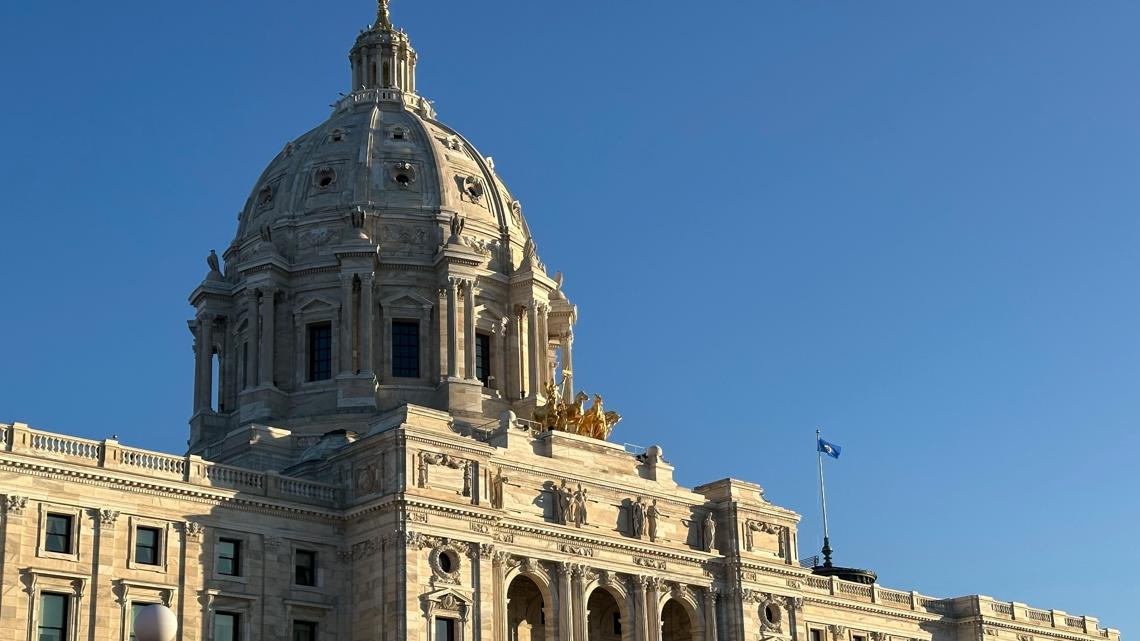Kare11
St. Paul voters deny tax increase for childcare


Nearly 60% of voters voted against that increase.
ST PAUL, Minn. — Voters in St. Paul have voted against a property tax increase that would have provided childcare at no cost to low-income families. Nearly 60% of voters voted against that increase.
Along with low-income families, other families would have seen childcare available on a sliding scale.
In the past, St. Paul Mayor Melvin Carter has said the measure won’t work, telling KARE11 in October that, “based on my judgment, it can’t be done.”
“If I’m a voter, I think, if we vote yes on this, then childcare will be available in the city at no cost to low-income families,” Carter said in October. “This proposal would serve an average of only 404 children per year, at a total cost of $110 million in property tax increases.”
“We can’t ask (St. Paul voters) to pass the largest single property tax increase that I can ever remember on the basis of making a promise that explicitly says all children, and then turn around and say, ‘Oh, of the 20,000 children in our city under age five, we only meant 404 of them,” he continued.
Proponents of the measure have also been steadfast in their stances on this. St. Paul city council member Rebecca Noecker spoke with KARE11 last summer about the issue.
“There’s never been a claim that this would cover every single child on day one,” Noecker told KARE11 back in the summer of 2023. “This is to provide low-income families with free child care, and to make it more affordable for families above that.”
Mayor Carter’s office said Wednesday there would be no comment after the measure failed.
Kare11
Officials asking for information in 35-year-old cold case


8-month-old Michael Freeman died on Nov. 6, 1989 after going into seizures while in the care of his babysitter.
FRIDLEY, Minn. — It’s been 35 years since 8-month-old Michael Freeman died one day after having seizures while in the care of his babysitter in Fridley.
Officials say Michael was transported to a hospital on Nov. 5, 1989, and then died the following day. An autopsy showed that he had a skull fracture, a large subdural hemmorrhage and a cerebral edema, leading authorities to rule his death a homicide.
No arrest was ever made, but the Anoka County Sheriff’s Office is again looking to the public for any information that could help lead officials to a suspect.
Anyone with possible leads or tips is asked to email the department at ACSOColdCases@anokacountymn.gov. Officials say people can remain anonymous as they look for more answers.
Kare11
How a handful of votes could decide which party has control at the Minnesota State Capitol


Election results show Republicans and Democrats may each have 67 seats in the Minnesota House, but at least two races could head to a recount.
ST PAUL, Minn. — The Minnesota State Capitol is filled with big personalities and lengthy debates, but which party has control next year could be decided by a very small number of voters.
University of Minnesota political professor Larry Jacobs said as of Wednesday evening there is a dead-even tie in the Minnesota House with 67 Republicans and 67 Democrats.
“My breath is still being held. We are in the middle of a very close battle,” Jacobs said. “It’s really rare. You have to go into the history books.”
According to the Minnesota Legislature’s website, Minnesota hasn’t experienced a tie in the house since 1979. Records show the two parties argued over who would fill the role as Speaker of the House, since neither party could claim the position without a majority in the House.
The Secretary of State took over the role temporarily until the two parties worked out a deal. However, records show that deal between the parties eventually fell apart during the final days of the session.
According to the Minnesota Legislature’s records, the last 10 days of the 1979 legislative session included:
Fists slammed on desks, cries of order that were ignored, protests and dissents being logged in the Journal of the House, a walk out of DFL representatives that left the House without a quorum, and official business left unfinished, necessitating a special session.”
Jacobs said history could repeat itself if the tie in this current election is ultimately upheld.
“The first question will be well, who is going to be the speaker? Who are going to be on the committees? How are the committees going to operate? There will be a lot to sort out,” Jacobs said.
However, there is a decent chance the tie in the Minnesota House could be broken. Two of the races for seats in the Minnesota House are incredibly close. In District 14-B in Saint Cloud, the race was decided by just 28 votes. In District 54-A in Shakopee, the race was decided by a matter of just 13 votes.
Election officials in the respective counties, Scott County and Stearns County, both say that a recount is possible.
Officials say the losing candidates must request a recount, but their campaigns won’t have to pay for the recount because the margin of victory is lower than 0.5%, which is the requirement for a publicly funded recount.
Election officials in Scott County say the recount in the race for 54-A could happen sometime between Nov. 20 and Dec. 2.
Election officials in Stearns County say a recount in the race for 14-B would likely happen sometime during the week of Thanksgiving.
Election officials in both counties are currently working with the Minnesota Secretary of State’s Office to facilitate their potential recount should the candidates formally request one.
“These are very close races. It’s a few dozen votes. If you think of your extended family that might show up for a reunion, it’s that kind of difference,” Professor Jacobs says.
There is more at stake than just control over the Minnesota House. Jacobs said recounts in these two races could potentially determine whether one party has control over the entire Minnesota State Capitol.
“The Democrats have been able to hold the one seat that was up in the Senate, so they are going to have their one-seat majority in the Senate. The governor of course, Tim Walz, is back, so the Democrats have two of the three.”
The Democrats would have had a clean sweep of all three bodies if it weren’t for just a handful of votes in these two close races that have narrow victories by Republicans.
“Overall, it’s good news for the Republicans, because if it’s a tie, or it’s a majority, they are going to be able to block the Democrats,” Jacobs said/
So, if everything stands, could history repeat itself here in Minnesota? Jacobs said Minnesotans could be facing another chaotic session at the State Capitol, like they did back in 1979.
“I would hope there would be some effort on some issues to find agreement, but the reality is that the game plan for Republicans is to stop the Democrats. They don’t want to see spending. They don’t want to see taxes being increased. I don’t think it’s malice. I think it’s just very different political agendas,” Jacobs said.
Besides the races in 54-A and 14-B, nearly a half dozen other Minnesota house races were determined by a few hundred votes.
Candidates in those other close races could also request a recount, but election officials say since the margin of victory in those other races is higher than the margin of 0.5% the candidates would have to pay for the recount themselves.
Kare11
Economic concerns pushed voters to Trump, so what comes next?


President Trump is promising sweeping changes to tariffs, immigration and taxes. While Wall Street surges in the short term, experts say the months ahead are murky.
MINNEAPOLIS — Exit polls found a consistent theme among the voters who helped send President Donald Trump back to the White House on Tuesday: Inflation and the economy were top of mind.
According to national exit polls conducted by NBC News, 45% of all voters said they were worse off financially than they were four years ago, with 2 in 3 rating the economy poorly.
But at a time when many economic indicators show the U.S. is outperforming many other countries, the views of voters still vary widely.
“One thing that’s interesting about the economy this year is that the economy has sent some mixed signals,” said Chris Chapp, Political Science Professor at St. Olaf College. “And voters really reacted through a very partisan lens.”
Professor Chapp and his students conducted exit polling across 14 precincts within Minnesota Congressional District Two.
Of the 665 voters surveyed, 55% of Trump voters listed “Inflation/Economy” as the most important issue, compared to just 18% of Harris voters.
While Harris did win Minnesota, and narrowly carry CD2, Chapp says economic concerns help explain why she underperformed democrats Angie Craig and Amy Klobuchar.
“In our survey, close to 10% of Klobuchar voters also voted for Trump,” Chapp said.
Of those split-ticket voters, Chapp says 45% listed “Inflation/Economy” as the top issue.
“It doesn’t matter where you go, high prices are hitting people in the face,” said Chris Farrell, senior economics contributor for American Public Media’s Marketplace.
While economic frustrations helped swing the election in Trump’s favor, Farrell says the post election surge on Wall Street on Wednesday also shows how strong the underlying economy continues to be.
“President-elect Trump is inheriting a good economy,” Farrell said. “You have a low unemployment rate. The economy grew at a 2.7% annual rate in the third quarter, the inflation rate is coming down.
And then the expectation is there is going to be less regulation and lower taxes, so you’re looking at pretty good cash flow. That’s what I think we’re going to be seeing in the stock market.”
But he says the real test will be what comes next.
“I do believe that we will have tariff increases,” Farrell said. “I don’t know what exactly the percentage is going to be but Trump has been consistent throughout the campaign and actually back when he was President, very consistent that he likes tariffs.”
Once that plan emerges he anticipates a different kind of inflation fight with the federal reserve over interest rate cuts.
Then there are all the other cuts that Trump has promised on the campaign trail, alongside his so-called “secretary of cost-cutting,” Elon Musk.
“My expectation, and this is what I’m going to watch, is that Musk is going to be involved,” Farrell said. “What does this really mean if he gets involved in cutting the budget, how will that emerge, how deep will the cuts be who is going to get impacted by those cuts? Follow that closely because once we start making cuts, it can have a real impact on people’s ordinary lives.”



